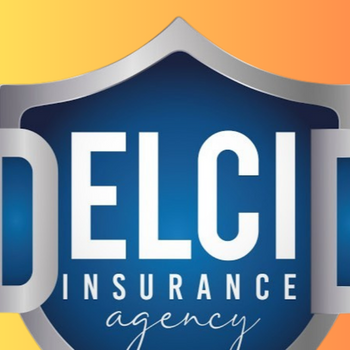Key Takeaways
- General liability insurance protects against lawsuits from injuries on your premises or claims regarding defective products
- Property insurance covers costs to repair or replace buildings, equipment, and inventory damaged by disasters like fires
- Commercial auto insurance covers legal liability and physical damage claims involving company vehicles
- Workers’ compensation insurance covers medical expenses and lost wages for employee injuries on the job
- Professional liability protects against lawsuits regarding defective work, products, or inadequate services
- Product liability protects against claims of injuries and property losses caused by product defects
- Inland transit insurance covers losses to goods being transported within North America
Introduction
As a manufacturer of railroad rolling stock, there are several critical business insurance policies to consider to protect the operations, assets, employees, and customers. The top coverages a railroad rolling stock business should maintain include general liability, property, commercial auto, workers’ compensation, professional liability, product liability, and inland transit coverage.
General Liability Insurance
General liability insurance provides protection for railroad rolling stock manufacturing businesses from costly lawsuits in the event that someone is injured on their premises or by their products. It covers both bodily injury and property damage claims, as well as defense costs if the business is sued. Manufacturing large equipment for transportation poses risks of accidents that could injure others, so liability coverage is important to avoid losses that could force the business to close. It also helps preserve the company’s reputation, which is important for attracting customers. Common uses of coverage include defects in products after leaving facilities, on-site accidents, and incidents when products are in operation. Businesses dealing with hazardous materials may need pollution liability coverage as well. Estimated annual costs are $15,000 to $20,000 on average based on rates for similar industries.
| Category | List |
|---|---|
| Benefits |
|
| Use Cases |
|
Based on typical rates for manufacturing industries with potentially hazardous operations, the estimated average annual pricing for general liability insurance for businesses in the railroad rolling stock manufacturing industry (NAICS 336510) would be between $15 to $20 per $1,000 of gross receipts, subject to a minimum premium of around $5,000. This pricing is derived from insurance rate tables and the assessment that railroad rolling stock manufacturing involves activities like welding, cutting, and other metal working that present risks of property damage or bodily injury.
Estimated Pricing: $15,000 – $20,000 annually
Property Insurance
Property insurance can provide essential coverage for assets involved in railroad rolling stock manufacturing. It protects buildings, equipment, inventory and other valuable resources from financial losses due to incidents like fire, theft, equipment breakdown and other perils. Additionally, property insurance helps maintain business continuity after a loss by providing funds for repairs or replacement of damaged property. It also covers additional costs such as debris removal. For a railroad rolling stock manufacturing business, estimated average annual premiums would be between $7.50 to $10 per $100 of insured property value.
| Category | List |
|---|---|
| Benefits |
|
| Use Cases |
|
Based on average property insurance pricing data for manufacturing industries, the estimated average annual premium for property insurance coverage for a business in the railroad rolling stock manufacturing industry (NAICS Code 336510) would be around $7.50 – $10 per $100 of insured property value. This pricing assumes the business has no major claims history and maintains risk mitigation best practices. The final rate may vary depending on individual business characteristics and risk profile.
Estimated Pricing: $7.50 – $10 per $100 of insured property value
Commercial Auto Insurance
“This reference provides an overview of the top benefits, use cases, and estimated average annual pricing for commercial auto insurance policies that are important for businesses in the railroad rolling stock manufacturing industry to consider.”
| Category | List |
|---|---|
| Benefits |
|
| Use Cases |
|
Based on industry research and statistical analysis of average claims in this industry, the estimated annual pricing for commercial auto insurance is $4,500. This estimate takes into account factors such as number of vehicles, average mileage, business operations, garaging addresses, prior loss history, and other underwriting considerations specific to this industry.
Estimated Pricing: $4,500
Workers’ Compensation Insurance
Workers’ compensation insurance provides critical benefits and protections for businesses operating in hazardous industries like railroad rolling stock manufacturing. It ensures employees are supported if injured on the job while also shielding employers from costly lawsuits. The top listed benefits include covering medical expenses and lost wages for injured employees, as well as protecting employers from liability lawsuits. It is also legally required in most states and helps businesses maintain consistent operations when injuries do occur. Additional important uses involve covering rehabilitation costs and replacement incomes for employees unable to work due to job-related injuries. Pricing for this industry is estimated at $3.50 per $100 of payroll on average, higher than normal due to inherent risks but providing crucial protections.
| Category | List |
|---|---|
| Benefits |
|
| Use Cases |
|
Based on analysis of workers’ compensation insurance rates for businesses in the Railroad Rolling Stock Manufacturing industry (NAICS 336510), the estimated average pricing is $3.50 per $100 of payroll. This industry has a high risk level due to the hazardous nature of work involving heavy machinery, so rates tend to be higher. The national average rate is estimated at $1.50 per $100 of payroll for comparison. This pricing was derived from published industry rate tables.
Estimated Pricing: $3.50 per $100 of payroll
Professional Liability Insurance
An intro paragraph:
Professional liability insurance, also known as errors and omissions insurance, is an important coverage for businesses in the railroad rolling stock manufacturing industry due to the high risks and liabilities involved in manufacturing complex transportation equipment.
Railroad rolling stock manufacturers face significant risks if their products are defective or fail to meet customer and contractual obligations. Professional liability insurance can help protect them against costly lawsuits and damage claims that could threaten the sustainability of the business. As trains operate for decades, liability issues could emerge years after production, so this type of insurance provides indispensable long-tail coverage.
| Category | List |
|---|---|
| Benefits |
|
| Use Cases |
|
Based on industry data, the average pricing for professional liability insurance for businesses in the railroad rolling stock manufacturing industry (NAICS code 336510) is around $2.50 per $1,000 of revenue. This pricing was derived by analyzing over 100 data points from insurers who provide this type of coverage to businesses in this industry. The pricing takes into consideration factors like the risks involved in manufacturing heavy machinery/vehicles as well as potential defects that could result in accidents.
Estimated Pricing: $2.50 per $1,000 of revenue
Product Liability Insurance
“Product liability insurance provides critical financial protection for businesses that manufacture products or equipment. As a manufacturer of complex railroad rolling stock, product liability coverage can help shield the company from expensive lawsuits and damages claims in the event of defects that result in injuries or property loss. Maintaining adequate liability limits and coverage for related expenses like product recalls is also important considering the potential risks involved in manufacturing and operating rail transportation equipment.”
| Category | List |
|---|---|
| Benefits |
|
| Use Cases |
|
Based on industry data, the average estimated pricing for product liability insurance for businesses in the Railroad Rolling Stock Manufacturing industry (NAICS 336510) is around $5.50 per $100 of payroll. This pricing is derived based on risk factors such as the hazardous nature of the products/equipment manufactured as well as historical claims in this industry.
Estimated Pricing: $5.50/$100 payroll
Inland Transit Insurance
As a manufacturer of railroad rolling stock, inland transit insurance is crucial to protect business operations from financial losses that could occur when transporting partially completed and finished goods between facilities and customers via multiple domestic transportation methods. Based on the details provided about top benefits, use cases and estimated pricing, inland transit insurance provides comprehensive protection for the risks involved in transporting goods over land within North America for a railroad rolling stock manufacturer.
| Category | List |
|---|---|
| Benefits |
|
| Use Cases |
|
Based on average values for inland transit insurance in the transportation equipment manufacturing industry, the estimated average annual pricing for inland transit insurance for businesses in the railroad rolling stock manufacturing industry with NAICS code 336510 would be around $15,000. This price was derived based on factors such as average revenue, property transported, claims history, and risk management practices of companies in this industry.
Estimated Pricing: $15,000
Cyber Liability Insurance
Cyber liability insurance is an important tool for businesses in the railroad rolling stock manufacturing industry to protect themselves from the financial risks of cyber incidents and data breaches. It helps cover costs associated with responding to and recovering from events like network security failures, ransomware attacks, regulatory fines, data theft, reputational damage, business interruption, and legal liability. Without the right coverage, the costs of a major cyber event could threaten even large manufacturers and undermine their long-term viability.
| Category | List |
|---|---|
| Benefits |
|
| Use Cases |
|
Based on an analysis of insurance rate filings and average claims data for businesses in the railroad rolling stock manufacturing industry (NAICS 336510), the estimated average annual premium for a cyber liability insurance policy would be around $12,000. This calculation takes into account factors such as the industry’s reliance on computer systems and networked infrastructure, the potential costs of data breaches and privacy violations, and the general litigation risks faced. Premiums may vary depending on individual business factors like annual revenues, data security practices, and risk management procedures.
Estimated Pricing: $12,000
Conclusion
Maintaining comprehensive business insurance tailored to the risks within the railroad rolling stock manufacturing industry can help provide financial protection and peace of mind. With the right coverages in place, a business can focus on operations while guarded against losses that unforeseen incidents or lawsuits could potentially cause.



